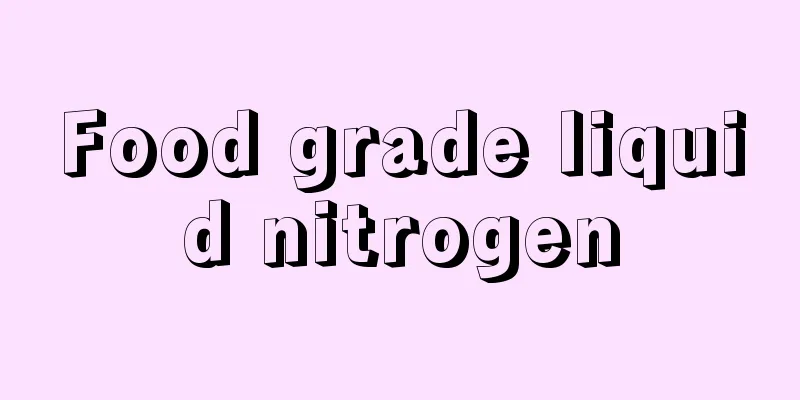Food grade liquid nitrogen

|
People may not know much about food-grade liquid nitrogen. It also plays an important role in food production. For example, the ice cream we usually like to eat tastes very cool and delicious. Eating some liquid nitrogen molecular ice cream on a hot day is really refreshing. Ice cream is made of food-grade liquid nitrogen. Some liquid nitrogen biscuits are also made of food-grade liquid nitrogen. Let's learn about food-grade liquid nitrogen. Is liquid nitrogen toxic? Can I eat frozen food? This is a question that confuses many people, so I am here to tell you: liquid nitrogen itself is non-toxic. Liquid nitrogen vaporizes into nitrogen gas, which accounts for 78% of the air. It is naturally not toxic, but it can cause frostbite. The boiling point of nitrogen is 77K (-196℃). Liquid nitrogen will be formed when the temperature is lower than minus 196 degrees Celsius under normal atmospheric pressure. If pressurized, liquid nitrogen can be obtained at a relatively high temperature. Liquid nitrogen in molecular gastronomy changes the molecular structure of food through scientific methods, and then recombine it to create novel edible food. Its emergence has far exceeded people's imagination, and it can make food a cooking technology in terms of vision, taste, and touch. Liquid nitrogen is a liquid at a low temperature of -196°C, which is obtained from nitrogen gas which accounts for more than 70% of the air composition. It is inert, colorless, non-toxic, volatile, and has a very wide range of uses. Liquid nitrogen is volatile at low temperatures, so it is generally stored in a special container - a liquid nitrogen tank. According to the purity and use of liquid nitrogen, it is often divided into food grade liquid nitrogen and industrial grade liquid nitrogen. Food-grade liquid nitrogen has a higher purity, and because of human safety considerations, its purity reaches 5 nines, or 99.999%. The purity of industrial-grade liquid nitrogen is not as high as that of food-grade liquid nitrogen. Different industries have different requirements for the purity of liquid nitrogen. Applications of food-grade liquid nitrogen include liquid nitrogen ice cream and liquid nitrogen biscuits. Liquid nitrogen freezing and anesthesia in medicine also require high-purity liquid nitrogen. Other industries such as chemical industry, electronics, metallurgy, etc. have different requirements for liquid nitrogen purity. |
>>: What to do when there are mosquitoes buzzing while sleeping
Recommend
How to treat pain below the shoulder blade in the back
If you feel pain below the shoulder blade in the ...
Symptoms and treatment of atrophic lateral sclerosis
Amyotrophic lateral sclerosis (ALS) is also known...
How do you get pubic lice
I believe many people have heard of pubic lice, b...
Can early liver cancer be cured? Eating this oil often can easily lead to liver cancer
In the cancer spectrum of Shenzhen last year, the...
What are the ingredients of coffee?
Coffee is a very important drink in life and a ve...
What is the difference between hydrogen peroxide and alcohol
Hydrogen peroxide and alcohol are both common ite...
Are smokers who love to drink tea more likely to get bladder cancer? Eating raw cabbage can prevent bladder cancer
The incidence of bladder cancer has been increasi...
Which Chinese medicine hospital is good for prostate cancer
Many prostate cancer patients are recommended by ...
How to face the fear of death
People are always full of joy and expectation for...
What's the matter with a cold and stomachache?
The common cold is a very common disease in the h...
What is the orthodontic process like?
Crooked teeth can affect a person's facial im...
How to keep fresh frozen fish
The best way to preserve fresh fish is to store i...
Is lung puncture dangerous?
Lung puncture is a clinical examination method fo...
Can brown sugar water cure constipation?
Female friends should be more familiar with brown...
I get up in the morning with a sore spine
We all know that waking up in the morning is the ...









